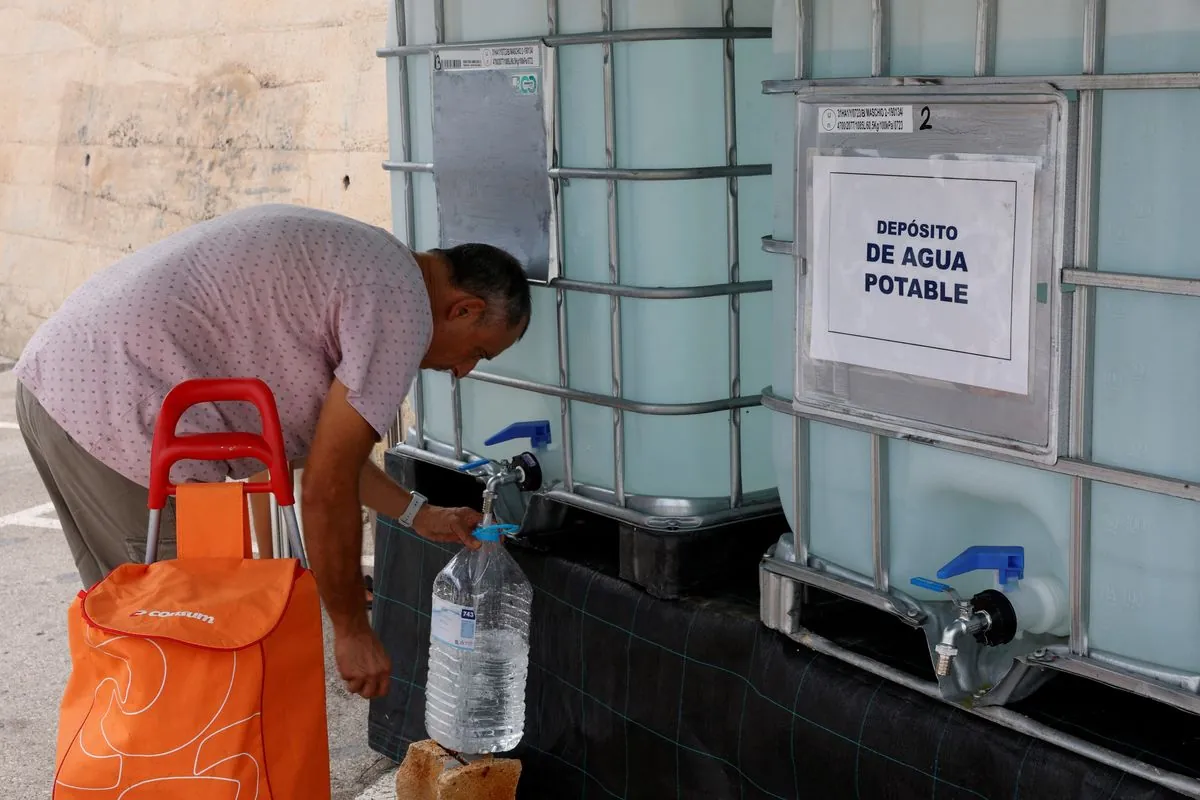In a concerning development along Spain's picturesque Costa Blanca, a severe drought has rendered tap water unfit for consumption in several towns. This crisis has forced both residents and tourists to queue at distribution points for bottled water to meet their basic needs.
The drought has led to a significant drop in water levels, resulting in increased salinity. Consequently, local authorities have deemed tap water unsafe for drinking or cooking purposes in affected areas. To address this issue, free bottled water is being distributed to the public.
Environmental experts attribute this water crisis to a combination of factors, including overdevelopment, climate change, and the influx of tourists during peak summer months. The Marina Alta area, situated north of Alicante, exemplifies the stark contrast in water consumption between seasons. In July 2024, water usage soared to 19.67 billion liters, a staggering increase from the 2.3 billion liters consumed in January of the same year.
The region's water scarcity is further exacerbated by the prevalence of swimming pools. According to the National Statistics Institute, there are nearly 38,000 pools in the area, equating to one pool for every five inhabitants. This ratio far exceeds the national average of one pool per 35 people, highlighting the strain on local water resources.
In response to the crisis, local authorities have implemented strict water conservation measures. These include bans on filling swimming pools, watering gardens, and washing cars during daytime hours.
Joan Sala, a representative from the environmental group Accio Ecologista-Agro, expressed grave concern about the situation. "We're already entering a climate emergency," Sala stated, citing alarmingly low rainfall levels. The northern part of Alicante province received only half the usual amount of rain in 2023, and a mere 10% of average levels in the first eight months of 2024.
The drought's impact extends beyond daily life, affecting local businesses and traditional cuisine. Fernando Sapena, owner of El Raco De L'arros restaurant in Teulada-Moraira, which specializes in paella, highlighted the need for better planning. "There needs to be a bit more foresight, because now in the summer there are a lot more people here than in the winter," Sapena remarked.
Interestingly, the region's hard water, rich in minerals, has long been credited for the distinct flavor of Valencian paella. However, the current water crisis poses a challenge to this culinary tradition.
The agricultural sector has also been severely affected, with farmers' association ASAJA reporting losses exceeding 65 million euros as of July 2024. This figure underscores the far-reaching economic implications of the ongoing drought.
As Costa Blanca grapples with this water crisis, it serves as a stark reminder of the urgent need for sustainable water management practices and climate change mitigation efforts. The situation calls for a collaborative approach involving local authorities, businesses, residents, and tourists to ensure the long-term water security of this popular Mediterranean destination.
